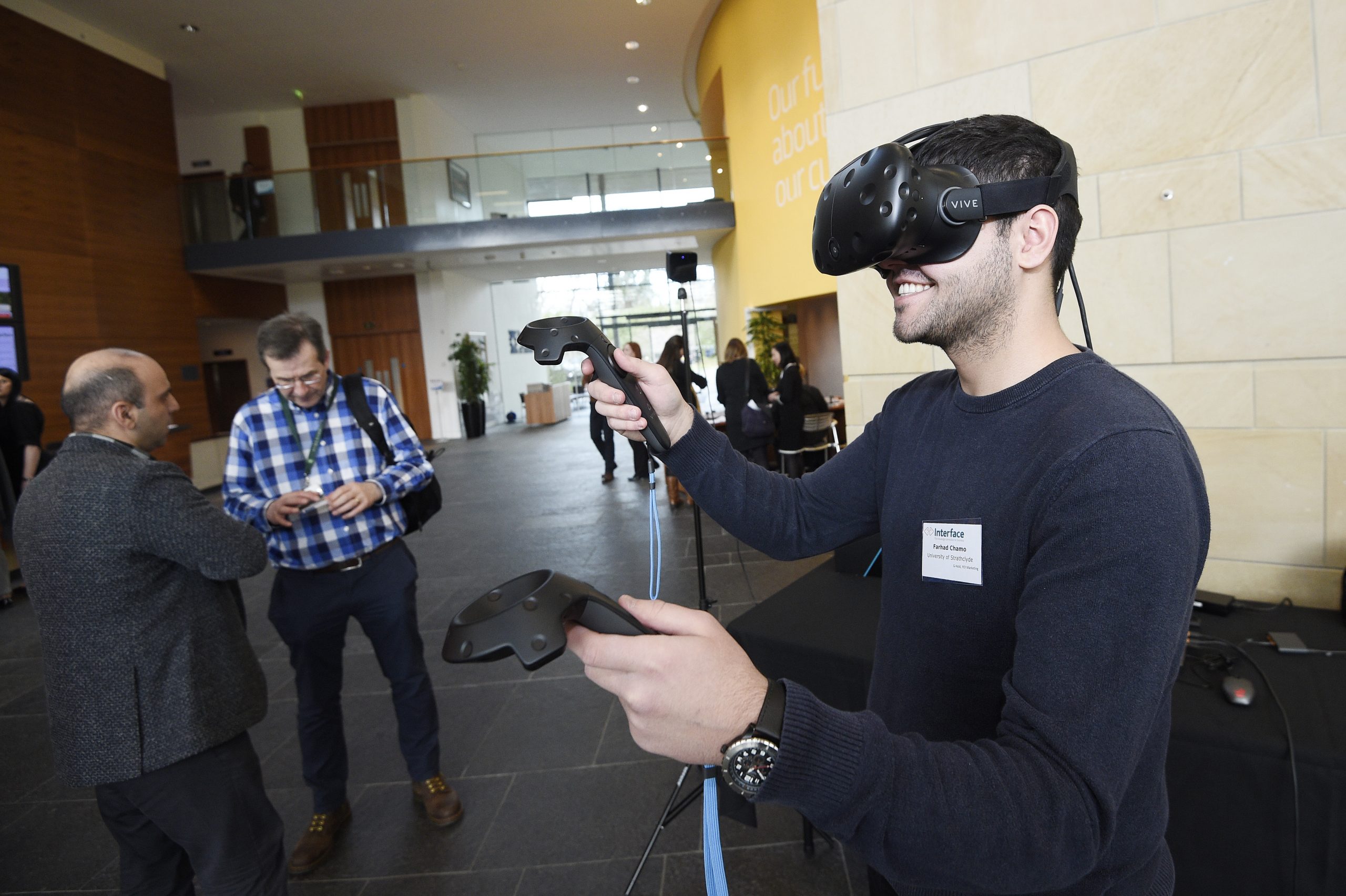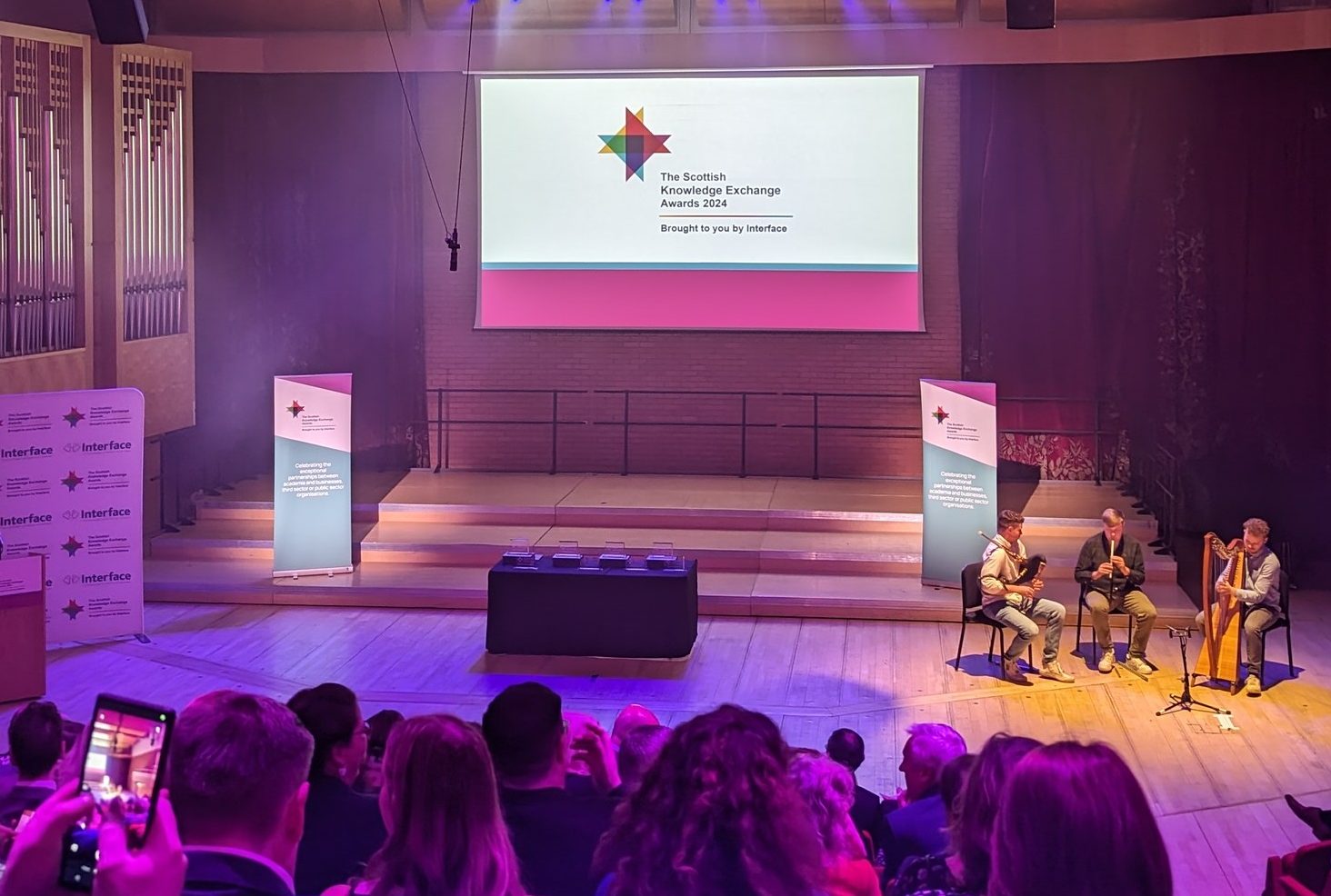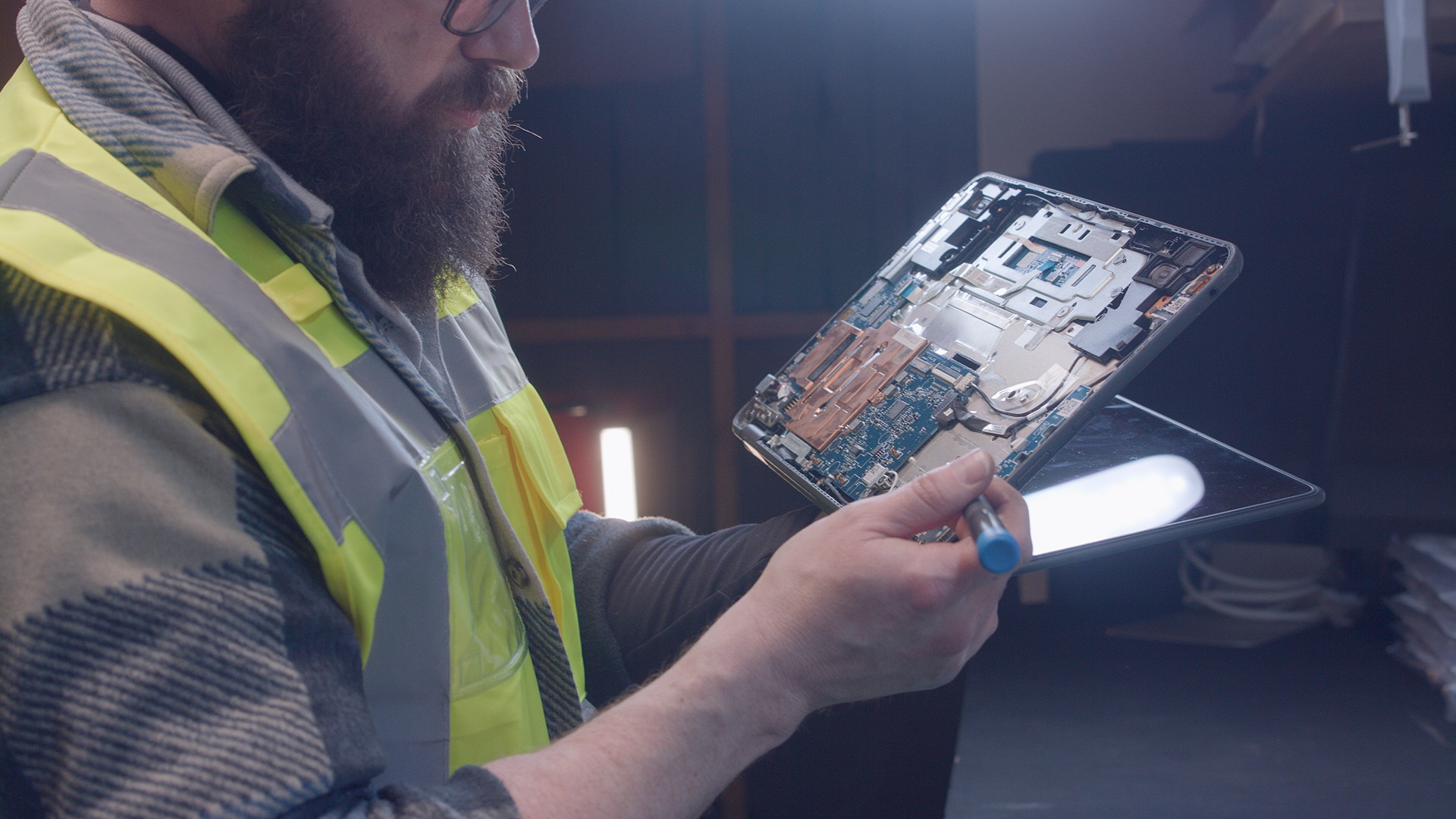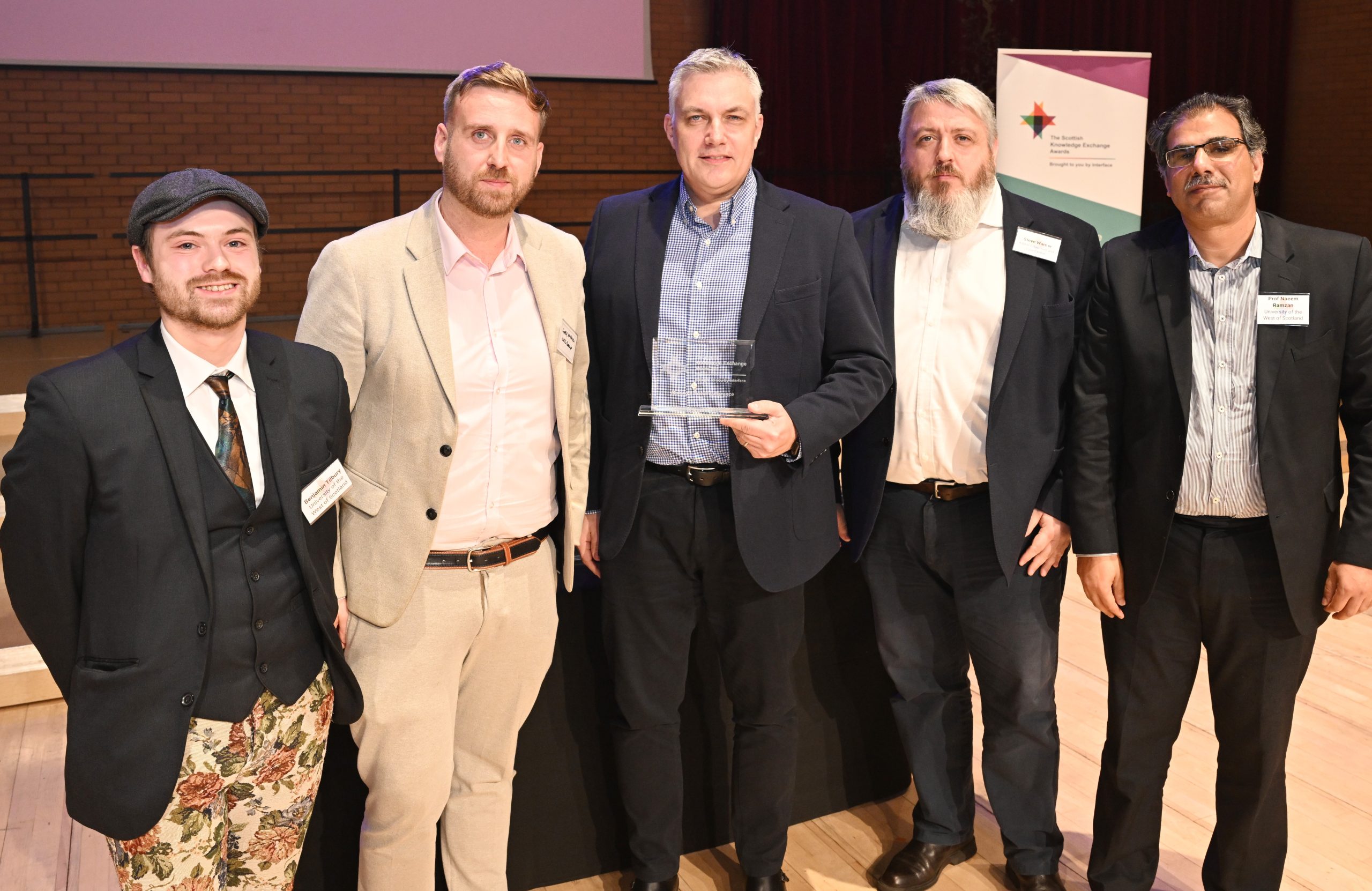Blog
Triangle of engagement chimes success

A few months after joining Knowledge Transfer Network (KTN) as CEO, I am delighted to report that the business-university-graduate engagement continues to make its mark across Scotland, demonstrating significant impact for those involved.
KTN is focused on using our deep expertise and powerful connections across the whole of the UK innovation ‘ecosystem’ to drive positive change. KTPs are a fantastic example of the benefits those connections bring to our economy and our society as a whole. A Knowledge Transfer Partnership (KTP) is a three-way collaboration between a business, university/research institute and graduate (Honours, Masters or PhD) who leads a strategic project aimed at tackling a particular challenge within the business.
KTPs are open to businesses in all sectors, and usually last from one to three years. The partnership can bring many benefits to the business: solutions to long-standing issues they don’t have the expertise, resource or time to tackle; major cost savings and innovative developments which can support the company with additional revenue streams; new machinery or by breaking into new markets. The impacts can resonate throughout the company and can help shape future thinking and direction for years to come.
Embedding knowledge into an industry setting in this way has many advantages. Apart from the company benefits mentioned above, having a graduate, known as a KTP Associate, based in the business can bring about a change in the culture and attitudes towards innovation, inspiring other employees to share and exchange their knowledge and ideas. Alongside gaining a KTP Associate, the company gets access to an academic expert and the host university department.
For the KTP Associate, valuable hands on in-depth experience in a relevant sector is gained over the course of the project, and in many cases permanent employment with that company at its completion. For the academic institute, it creates an opportunity for the academic team to carry out a funded applied R&D project which frequently results in high quality publications and challenge led case studies. In addition, it opens another route to graduate employment and builds valued relationships directly with industry.
KTPs are one of the vehicles which Interface promotes to support businesses which want to collaborate with academic expertise in a longer-term partnership, often following an initial feasibility or proof of concept project funded by an Innovation Voucher.
There are more than 100 ongoing KTPs across Scotland helping tackle a range of business challenges including environmental issues, boosting manufacturing and productivity, and helping resolve challenges facing society, including health and wellbeing, inclusion and carbon emissions.
It is very encouraging to see businesses supported by Interface access Knowledge Transfer Network expertise and establish longer-term collaborations through a KTP – it demonstrates the joined-up nature of both organisations in forging valuable partnerships in a “team Scotland” approach. Through Interface, over 45 KTPs have been enabled with various Scottish university partners across different industry sectors.
One of the businesses to have discovered the value of the KTP model is Norscot Ltd, a construction business with bases in Caithness and Inverness. This three-year project to embed technology into the company and ensure it is market ready is funded jointly by Innovate UK and the Scottish Funding Council. The University partners are the University of Strathclyde and Teeside University. The KTP is focused on designing Virtual Reality software that enables customers, architects and industry professionals to visually communicate, reducing their average project cycle of the design of houses. By using virtual reality the company finds that the clients has a clearer understanding of how the house will look and feel far quicker than with traditional 2D drawings or graphics, giving more efficient feedback on the design. This not only speeds up the design process but ensures that the client understands what they are getting, improving customer satisfaction.
The project won a Scottish Knowledge Exchange Award for the Innovation of the Year in 2018 and following Norscot’s nomination, KTP Associate Lilia Potseluya Amobi has been shortlisted for an Innovator of the Future Award at the 2020 Awards. Norscot also received a Special Distinction Award from Building SMART International in Tokyo in 2018. The KTP is now in the final phase of the research and the company are already seeing commercial gains. In addition, the company has secured a second KTP looking at Smart Home technology and made an application to UKRI (UK Research and Innovation) for a Future Leaders Fellowship to support the current KTP associate transition into an innovation champion for the company, demonstrating the strategic importance of the KTP programme as a platform for developing the innovators of the future.
Another business benefiting from the KTP programme is the luxury clothing and knitwear manufacturer, Johnstons of Elgin. Working with the University of Strathclyde, the partnership has carried out pioneering R&D to develop innovative techniques and technologies for measuring the finish to woven cashmere piece. This has delivering an industry-first quality framework for woven fashion items, resulting in improvements in product quality and consistency as well as cost savings. Perhaps most importantly, it has allowed Johnstons to establish an evidence base to support the premium nature of its products.
As a result of the KTP brokered by Interface, Johnstons went on to partner with a nationally recognised leader in measurement to design and develop a system for objective and quantitative assessment of its product finish. The system developed will not only help Johnstons to drive down costs of remaking items, but it will also verify the potential for scaling up inspections of products moving at speed through manufacturing lines. There have also been investigations around novel applications of machine vision to luxury textile sizing, cutting and inspection. Johnstons now employs the KTP Associate and has gone on to secure further research funding.These partnerships demonstrate that combining the knowledge of students, backed by their academic institutions and industry, goes a long way towards meeting companies’ aims and applying R&D in real-world situations.
As we develop our new strategy for KTN over the next few months, we look forward to strengthening our relationship with Interface and working closely to drive meaningful new connections between business, industry, research and academia.
Congratulations to all of those nominated in the Scottish Knowledge Exchange Awards this week.
***
Interested in finding out more about KTPs? Please contact Interface or Knowledge Transfer Network.



